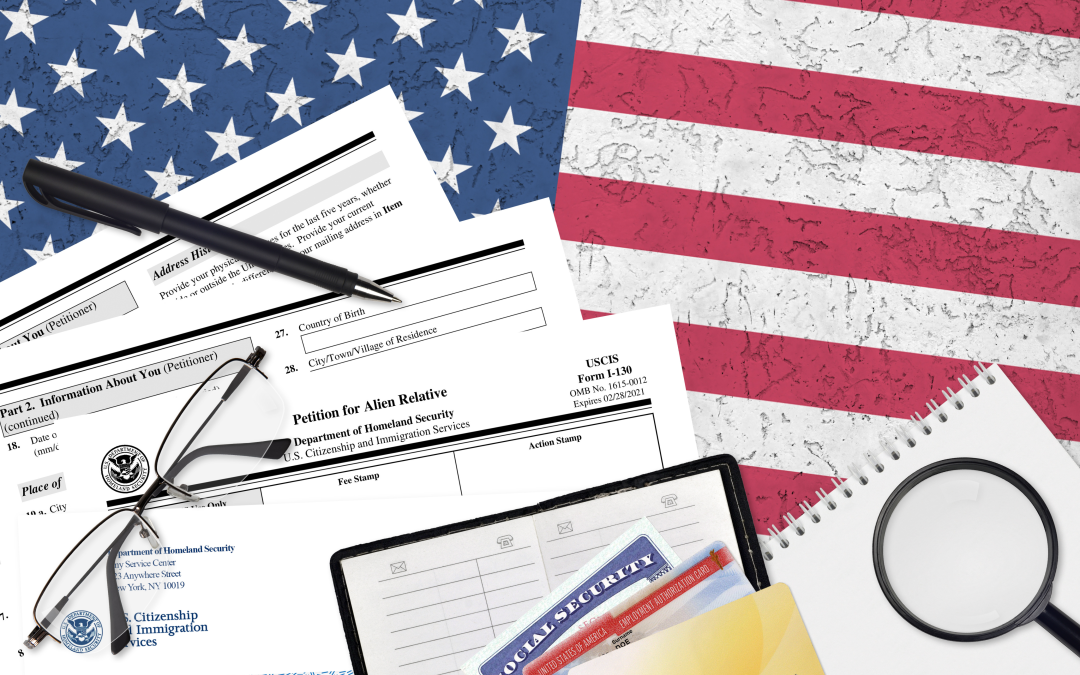The United States Citizenship and Immigration Services (USCIS) has different application forms for distinct purposes. If a US petitioner is applying on behalf of a foreign relative for a green card, the appropriate form for application is Form I-130 (Petition for Alien Relative).
Keep reading to discover how to overcome I-130 denials in marriage visa applications.
Applying for a Marriage-Based Green Card – Which Issues Would Result in I-130 Denials?
Only US citizens or lawful permanent residents can apply for a marriage-based green card on behalf of a foreign spouse. The first step to applying for a marriage green card is to file Form I-130. It is not unusual to find cases involving denials directly associated with:
- Insufficient evidence of a bona fide marriage
- Inconsistent or vague answers given by the applicants during the USCIS interview
- Incompatible information found while the application is processing
- Findings from earlier marriages that affect the applicant’s eligibility
How to Overcome an I-130 Denial – Anticipating Potential Hazards
Insufficient Evidence of a Bona Fide Marriage
When assessing marriage-based applications, the main purpose of US Immigration is to verify whether the relationship is real. It is not rare to find “fake” couples attempting to lure USCIS officials and circumvent Immigration laws.
If there is insufficient proof of a bona fide relationship, USCIS will deny the application. For example, many couples live together but do not hold joint health insurance, joint bank accounts, or any other type of joint account.
Depending on the couple’s circumstances, one spouse may not know about many of the other spouse’s life aspects, such as family relationships, professional activities, educational background, childhood years, etc.
Failing to demonstrate a bona fide marriage is usually associated with a failed interview or a lack of evidence in the supporting paperwork.
Inconsistent or Vague Answers Given During USCIS Interview
The interview is one of the fundamental steps involved in the marriage-based visa application process. If the couple is not prepared to attend their interview or one of the spouses is clueless about possible questions, the chances of denial may increase exponentially.
An experienced immigration attorney can guide spouses willing to prepare themselves for the interview and increase their chances of success.
Incompatible Information Found During the Application’s Processing
USCIS officials have several methods to obtain information about couples filing marriage-based visa applications. If the agents responsible for processing the petition find incompatible information, it may jeopardize the applicants’ chances.
For example, a married applicant with a social media account describing his or her relationship status as “single,” posting many photographs with none showing his or her spouse, or even videos showing the applicant with other partners.
If USCIS officials find potential signals of marriage fraud, it may provoke the rejection of a spousal I-130 petition.
Injurious Findings from the Applicant’s Earlier Marriage
Applicants who were married before must be cautious with spousal I-130 petitions. If there is something wrong in the applicant’s previous relationship, the chances of denial may increase significantly.
For example, if an applicant former spouse filed an I-130 immigrant relative petition for him or her and it was not approved due to signals of marriage fraud, the petition is subject to heavier scrutiny.
Depending on the severity of the situation, any of the applicant’s future petitions may be barred by USCIS.
Waste no Time with Uncertainty – Contact Immigration Attorney Romy B. Jurado Today
Avoid I-130 denials by calling Attorney Romy B. Jurado at (305) 921-0976 or emailing [email protected] for expert legal guidance.





